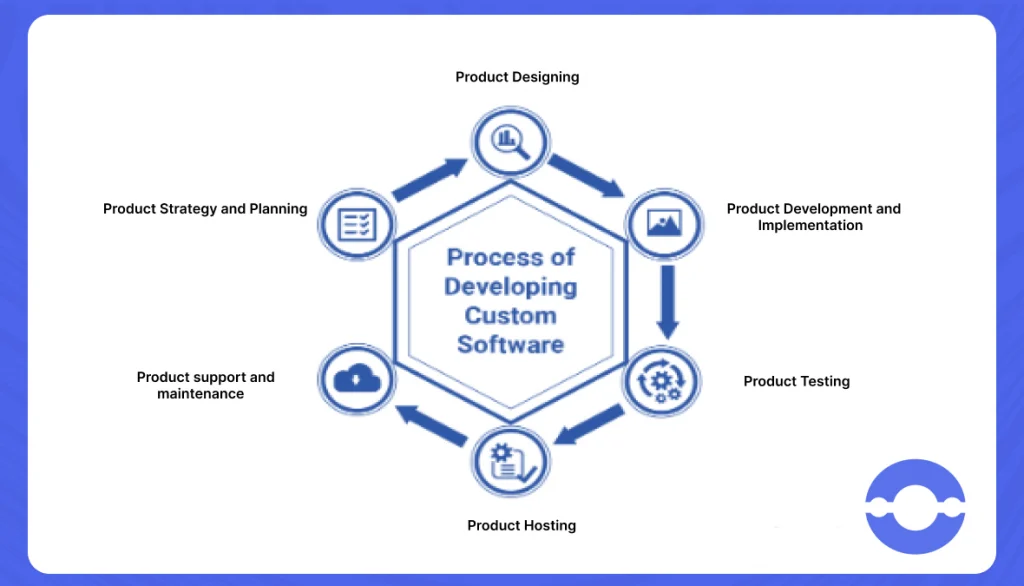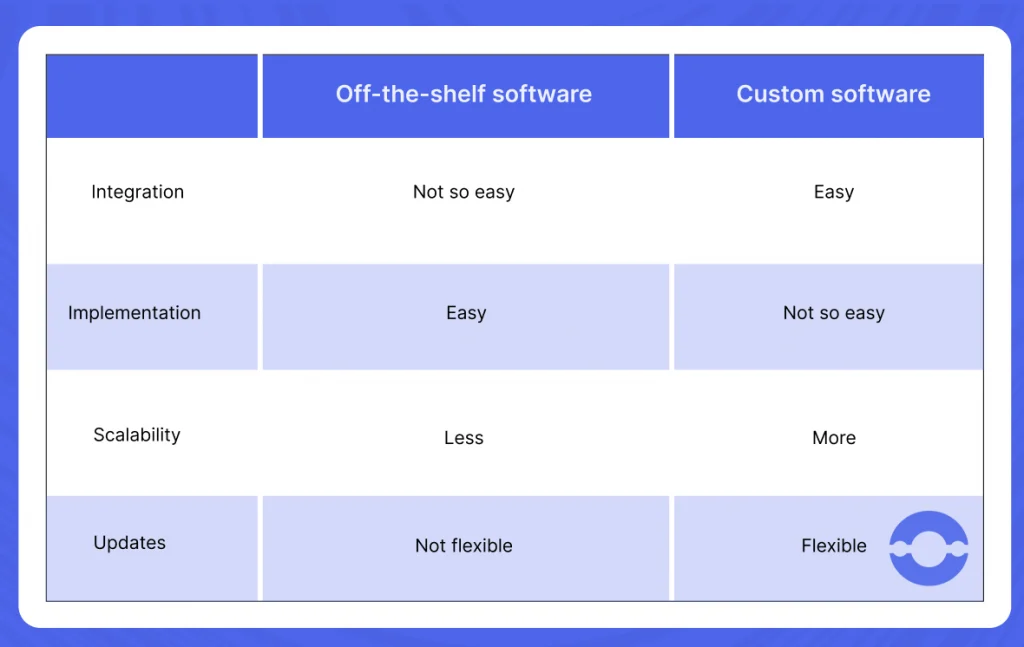
Every business needs software or applications to streamline workflows and better engage with its target audience. There are two ways of developing software. One is through off-the-shelf software development and the other is custom software development. While the former caters to mass needs, custom software development looks after an individual’s or an organization’s software needs. Moreover, the advantages of custom software development are ample to a business.
Let’s briefly differentiate between the types of software development and then talk at length about custom software development and advantages of custom software development to a business.
5 Advantages of Custom Software Development
Custom designed software development has extensive benefits. Some of these advantages of custom software development are:
1. Solutions tailored to your needs
With custom software development, a business targets its specific set of business needs and, moves closer to achieving business goals efficiently.
A business has its own set of objectives, targets, and workflows. One size fits all approach would not benefit it. Custom software development, on the other hand, facilitates application customization, application modernization, and management, giving businesses the power to drive their software.
Custom-made software enhances a business’s productivity and allows them to have a competitive advantage with the inclusion of bespoke features and functionalities.
2. Flexibility to accommodate changes
Since custom software development is a process that is driven by business requirements, the application built has more flexibility to accommodate updates and changes. An application can grow in scope, features, and functionalities, as a business grows.
An off-the-shelf software, on the other hand, might not align with a business’s growing needs or might become too costly to license. A business thus should always take a call keeping its future scaling needs in mind.
3. Seamless Integration
It is easy to integrate a custom-made application with other software systems in the organization. These applications are compatible with the business ecosystem while off-the-shelf software is not. The latter might face a hard time integrating with already existing business systems and as a result, show errors.
Custom software is easily integrated and enhances the business process and operations, leading to higher business productivity.
4. Enhanced security and reliability
With custom software, a business gets enhanced security as it adds security measures that it feels are imperative to the working of software and business. One does not need to rely on the restricted security features of an off-the-shelf product.
Moreover, with custom software, a business has all the control of applications in its hands. This includes pricing, terms, and conditions of use, updates, etc. It is thus a more reliable option than an off-the-shelf application.
5. Easy to use and manage
Custom-made software is easy to use, manage and control as they have the involvement of a business from start to end. The business knows its product through and through and hence is aware of its usage and best practices.
Although custom software requires constant support and maintenance, it’s all worth the cost. When a business knows the ins and outs of a product, it becomes easy to use, maintain, and scale.
Custom Software Development Process
A custom designed software development process involves the following steps:

1. Product strategy, and planning
This step involves undertaking market and competitive research, identifying the missing product in the market, and organizing client/internal meetings to discuss and pass the product and plan its specifics.
This stage involves talks about the what, why, and how of the product. Software Requirement Specifications (SRS), a document based on which the product is designed and developed is also prepared in this stage.
2. Product design, development, and testing
The next step includes deciding on the UI/UX design, and developing the product based on product specifications or SRS. After development, the product is tested for errors and bugs.
Moreover, a product is tested for its core application functions, installation on localized machines, compatibility on multiple devices, and text input. Both functional and non-functional testing is undertaken.
3. Product deployment and maintenance
The last step involves hosting the product and keeping it up and running for a lifetime with constant support and maintenance. For deployment, a business needs to decide whether it wants cloud-based deployment or on-premise deployment.
While the former provides businesses with scalable and flexible virtual computing resources, in the case of the latter, the software is located on a company’s servers under the protection of an internal firewall.
Custom Software Development: In-House or Outsource

After understanding the basics of custom designed software development, a business might be confused about whether to build it in-house or if should they contract out the development process to a third party. The last section of this blog addresses this question to help a business decide with the help of some use cases.
A business should opt for in-house custom software development when:
- It prefers to be involved in and manage all aspects of software development in-house
- has a skilled and experienced in-house team
- When the scope is ambiguous and requires course correction as a result of regular brainstorming with internal stakeholders
A business should go for outsourced product development when:
- the business has just started or it is a start-up to leverage third-party expertise, experience, and economies of scale
- it has a fair budget allocated to the software development
- the in-house team lacks the technical expertise or diverse industry experience required to develop a reliable and scalable product
When a business outsources a product development, it benefits from professional advice and consultation, and years of varied experience. These factors help a business avoid expensive business mistakes and software failures.
Looking for a reliable and efficient custom software development partner? BigOhTech’s years of industry experience and domain proficiency help businesses realize their business goals in a faster time, and cost-effectively.
Leverage BigOh’s robust leadership and dedicated team of developers to build your custom software today!
FAQs:
A custom software allows a business to target its exact business needs, scale the software as per requirements and easily integrate it with existing technical infrastructure.
Custom software development helps a business target its needs, streamline workflows with easy to use, manage and control applications. Thus, enhancing business productivity and efficiency.
Yes, custom software development is the number one choice for businesses. It may appear to be more expensive in the short run, but in the long run, it is designed to keep your business, and your customers in mind.
The benefits of custom software development clearly outweigh the costs, making custom software development the number one choice of businesses.
Use of analytics in custom software development helps in market and predictive analysis and provides customer insights after studying and analyzing behaviours and patterns.
Every company wants to scale; it’s a good problem to have. Most businesses fail due to a lack of scalability in their architecture and an inability to adapt to changing business needs.
BlackBerry and Nokia were the most notable failures due to scalability issues, as their mobile operating systems were unable to adapt to changing business needs.
Their software, or operating system, could not display high-resolution images for emails or play games even when better and more affordable hardware was introduced. It’s no surprise that they lost the game to companies like Android and Apple, which understood customer needs and desires.




